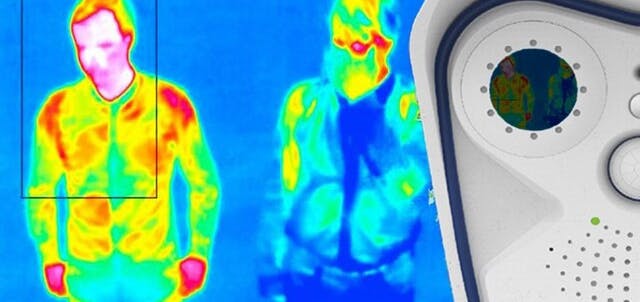
When can we fly again?

Mark Holmes
When can we fly again? This will be the question on many people’s minds.
The CEO of Heathrow Airport, John Holland-Kaye, was interviewed on The Coronavirus Newscast by Adam Fleming from the BBC, to find out what is happening at Heathrow.
Heathrow is currently seeing about 5000 passengers passing through terminals which is 3% of normal capacity. These travellers are mainly repatriation flights and cargo mostly medical goods for the NHS.
Up to the end of February, Heathrow was doing well year on year but throughout March passenger numbers have collapsed to levels similar to Bournemouth Airport, according to John Holland-Kaye.
Health screening
Health screening is the airport’s strategy to get people flying again. There two things they need to do.
Firstly, how to validate that you don’t have Coronavirus so that you will be accepted into the country you’re travelling too and allowed back.
Secondly, to make it low risk for passengers to travel safely through the airport and on the plane.
Temperature checks
In order to get international travel working again, once restrictions are lifted, there needs to be a common way for all countries to test for Coronavirus.
Temperature checks are an effective way to validate if someone is presenting with symptoms of the disease. It is likely that Heathrow will be testing passenger’s temperatures when entering airports.
At Heathrow there will be thermal cameras tied into the airport’s cctv. The camera’s focus will be on the face and particularly the tear ducts which are the most effective way of checking someone’s temperature.
If you are tested positive e.g. temperature above 37.5 degrees you will be taken aside and given further checks to see if you are safe to fly.
Not everyone with Coronavirus will be picked up with this system but it should help to reassure people in the future.
John Holland-Kaye explained that a lot of Asian countries are asking Heathrow to temperature screen people before they get on the plane. This is a widely accepted system for health screening in the world today.
Making the airport safe
Heathrow are making changes to the way they work to minimise the risk to passengers passing through the airport and on the plane.
There are two types of transmission. Respiratory where it’s on your breath and contact where you touch something and then make contact with your mouth or eyes.
Masks provide limited help to you when wearing a mask but they do help preventing you from passing it onto others by blocking any liquid or spit that comes out of your mouth when talking.
It is common practise in Asian countries to wear masks. They are work to prevent spreading diseases rather than protecting the person wearing the mask.
It may well become mandatory for staff and passengers to wear masks in the coming weeks.
Economic impact
Until we have a vaccine which might not be ready for another 12 to 18 months the aviation industry will have to rely on social distancing.
If that’s the case, borders won’t be opened up very soon and many aviation businesses will go bust, according to Heathrow’s CEO. Also, many businesses that rely on aviation will go bust as well.
Heathrow will be able to survive for at least 12 months. John Holland-Kaye suspects that many of the airport’s customers will have gone bust before then and many UK businesses will be in deep financial trouble.
Climate change
Adam Fleming asked if the Coronavirus was the best thing to happen for Climate Change since the invention of the solar panel!
John Holland-Kaye, thinks we have been slow to act on early warning signs about pandemics such as SARS and Coronavirus and we should have acted upon them.
With Climate Change we have had even bigger early warnings and can’t afford to ignore them. We should decarbonise our economies as soon as possible.
Will people change their attitude to travel?
The UK is a very small cog in the world aviation sector. We might change our own flying habits like not expanding Heathrow or flying less often.
Our actions will not effect what other countries do, especially in countries where aviation is very undeveloped such as China and India.
The best way to change aviation is for the UK to take a lead on sustainable aviation fuels and show the rest of the world they can have the benefit of flights without the negative impact on climate change.
When can we fly again?
There may be some light at the end of the tunnel for summer holidays. If countries can lift travel restrictions to give people certainty and time to plan for travel in July so that markets can open up again.